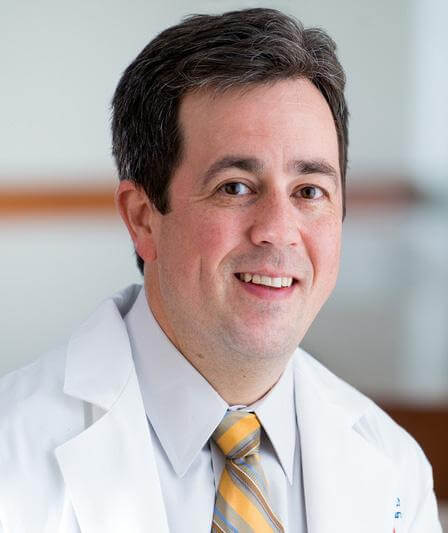
Susanna Naggie, MD, Vice Dean of Clinical Research at Duke University School of Medicine and Principal Investigator for the HERO-HCQ trial

Adrian Hernandez, MD, MHS, Executive Director of the Duke Clinical Research Institute and Principal Investigator for HERO Program
New information about whether hydroxychloroquine can help prevent new COVID-19 infection was published today in the New England Journal of Medicine.
In this first published randomized controlled trial researchers at the University of Minnesota found that hydroxychloroquine was safe and did not significantly decrease developing symptomatic COVID-19 disease in people with a reported high-risk exposure.
The trial had the primary objective to test if post-exposure prophylaxis with hydroxychloroquine can prevent symptomatic COVID-19 disease in asymptomatic high-risk contacts after known exposure to the SARS-CoV-2 coronavirus.
This study enrolled 821 participants. Participants nationwide qualified for the study if they were:
- symptomatic with a positive COVID-19 test within the first 4 days of symptoms and were not hospitalized; OR
- lived with someone who had been diagnosed with COVID-19, with their last exposure within 4 days, and did not have any symptoms; OR
- lived with someone who had been diagnosed with COVID-19, and their symptoms started within 4 days; OR
- had occupational exposure with known exposure to someone with lab-confirmed COVID-19 within 4 days and did not have symptoms; OR
- had occupational exposure with known exposure to someone with lab-confirmed COVID-19 within 4 days AND have compatible symptoms starting within 4 days
Participants took either placebo or the study medication, which comprised 800 mg pill orally once, followed in 6 to 8 hours by 600 mg, then 600 mg once a day for 4 consecutive days.
The primary objective was the number of participants at 14 days post enrollment with active COVID-19 disease.
What did the study find?
The study found no issue with safety in the group receiving the study medication. Comparing those receiving the study medication versus the placebo, participants were equally likely to develop symptomatic COVID-19 clinical disease. Overall, 13% of participants met the primary outcome which was mostly due to self-reported symptomatic cases without a confirmed test for COVID-19. The rate of the primary outcome was 11.8% in the HCQ arm and 14.3% in the placebo arm. Participants taking HCQ had more nausea, loose stools, and abdominal discomfort than those on placebo. There was no difference in serious adverse events or cardiac arrhythmias.
What does this mean for the HERO-HCQ trial?
This trial reaffirms what the outpatient data tells us from the millions of prescriptions written for patients with lupus and rheumatoid arthritis — HCQ is safe and generally well tolerated.
This is a great start to understand what role, if any, HCQ may play as a preventive or therapeutic for COVID-19. However, there are still questions that need to be addressed, and ongoing studies such as HERO-HCQ will fill these gaps.
HERO-HCQ is studying the role of hydroxychloroquine in pre-exposure prevention, before the healthcare worker has a known exposure to SARS-CoV-2. In addition, HERO-HCQ is evaluating whether a longer duration may protect or prevent healthcare workers from getting COVID-19. HERO-HCQ is also conducting viral testing at entry to the study and at the end of the study medication period, which will allow HERO-HCQ to understand whether HCQ can prevent asymptomatic SARS-CoV-2 infection, which has significant implications for transmission.
We commend the research team for completing and publishing one of the first randomized clinical trials testing whether hydroxychloroquine is safe and useful to prevent COVID-19. Still, the Minnesota team acknowledges some limitations, including the lack of viral testing for the majority of participants, so that the primary outcome was largely driven by participant-reported symptoms.
This publication and an accompanying editorial by Myron Cohen highlight the need for ongoing trials, including HERO-HCQ to further build on this randomized controlled trial data, to complete the story in search of a preventative therapy for COVID-19. As Dr. Cohen noted “the results reported by Boulware et al. are more provocative than definitive, suggesting that the potential prevention benefits of hydroxychloroquine remain to be determined.” The HERO-HCQ Trial aims to fill that gap.